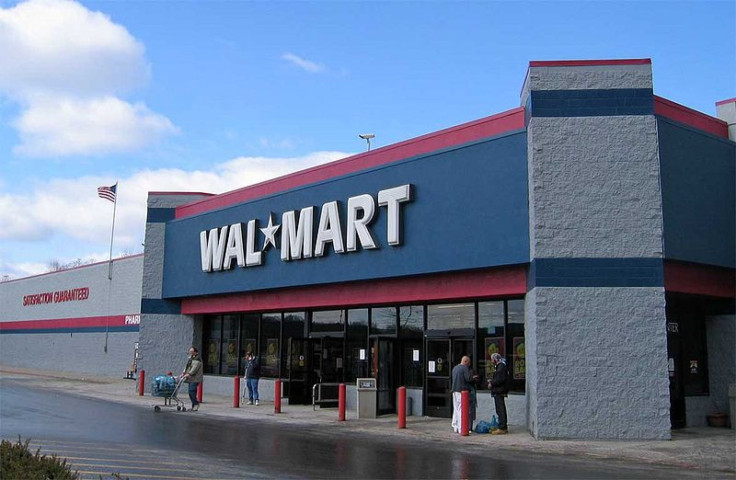It’s Bankers Vs. Wal-Mart (WMT) In Push To Force Financial Regulation Upon The World’s Largest Retailer

Wal-Mart Stores Inc. (NYSE:WMT) has been trying for years to expand into retail financial services, having gone as far as trying to buy a California bank in 2002 to acquire its state charter, a move that was blocked by lawmakers there, and failing a bid to open a bank in Utah in 2005 to circumvent debit and credit card swipe fees charged by Visa Inc (NYSE:V) and Mastercard Inc (NYSE:MA).
Three years ago, Canada granted the behemoth of Bentonville, Ark., a charter that allowed it to issue its own credit card through Wal-Mart Canada Bank of Mississauga, Ontario.
And last summer, it began selling a prepaid debit card in the U.S. though a partnership with American Express Company (NYSE: AXP), a move that raised eyebrows in the financial services community and led to accusations the company was gradually easing into financial services without the yoke of government oversight attached to banks.
If Wal-Mart were to be designated as a significant provider of financial services, it would have to submit regular reports to the Federal Reserve, the Financial Stability Oversight Council and the Federal Deposit Insurance Corporation on the company's credit exposure.
Now, a document acquired by Bloomberg through the Freedom of Information Act shows just how concerned bankers are about Wal-Mart’s efforts to move into services traditionally provided by commercial banks.
They claim Wal-Mart’s prepaid cards, such as the American Express-backed Bluebird card, which received backing from the Federal Deposit Insurance Corp. just last month (as reported in the Washington Post here), have unfair advantages, because Wal-Mart has a nonbank designation. What this means is the Federal Reserve has no supervisory authority over the company’s services.
Wal-Mart contends that the oversight occurs through the company’s bank partners and, like other retailers, has argued that Visa and Mastercard hold a virtual monopoly on card transactions and too much power to dictate how much they charge vendors to facilitate plastic transactions.
According to the minutes of a Dec. 19 meeting acquired by Bloomberg this week, the Federal Advisory Council -- a lofty 13-member cabal of some of the nation’s top bank executives that currently includes James Gorman, Morgan Stanley (NYSE:MS) chairman and chief executive, and Richard Davis, chairman and CEO of U.S. Bancorp (NYSE:USB) -- accused the world’s top retailer of having “entered banking through the back door, without the regulatory framework that applies to banks.”
The council wants the Fed to limit such services to companies with bank charters or at least do more research into payment services offered by companies that aren’t banks. It also said the Consumer Financial Protection Bureau, created by the 2010 Dodd-Frank law, should extend its watchdog duties to any companies that provide payment services.
So what has happened since that meeting? For one thing, it seems like the council’s recommendations have fallen on deaf ears, as least for now. Last month, the Board of Governors of the Federal Reserve System approved a final rule that establishes the requirements for determining when a company is "predominantly engaged in financial activities." The rule is used by the Financial Stability Oversight Council, or FSOC, to determine if a nonbank entity should fall under federal banking oversight when it offers ancillary financial services.
“A company is considered to be predominantly engaged in financial activities if 85 percent or more of the company's revenues or assets are related to activities that are defined as financial in nature under the Bank Holding Company Act,” the board said.
The rule also defines a “significant nonbank financial company” as any firm with “$50 billion or more in total consolidated assets or has been designated by the FSOC as systemically important.”
For now, Wal-Mart’s financial services don’t seem to fit the requirements, but, if it continues to expand into payment services, it could face the prospect of having to run itself a little more like a traditional bank.
© Copyright IBTimes 2024. All rights reserved.





















